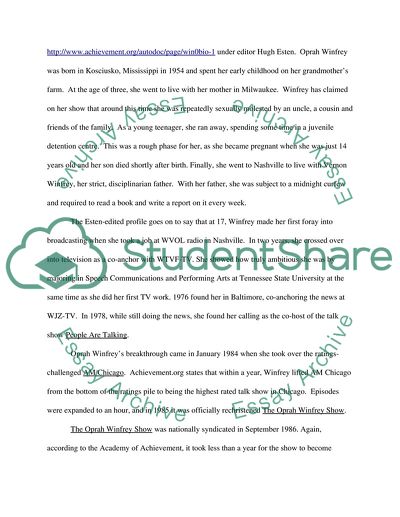Cite this document
(The Hidden Power of Oprah Winfrey Research Paper, n.d.)
The Hidden Power of Oprah Winfrey Research Paper. Retrieved from https://studentshare.org/people/1718455-the-hidden-power-of-oprah-winfrey
The Hidden Power of Oprah Winfrey Research Paper. Retrieved from https://studentshare.org/people/1718455-the-hidden-power-of-oprah-winfrey
(The Hidden Power of Oprah Winfrey Research Paper)
The Hidden Power of Oprah Winfrey Research Paper. https://studentshare.org/people/1718455-the-hidden-power-of-oprah-winfrey.
The Hidden Power of Oprah Winfrey Research Paper. https://studentshare.org/people/1718455-the-hidden-power-of-oprah-winfrey.
“The Hidden Power of Oprah Winfrey Research Paper”, n.d. https://studentshare.org/people/1718455-the-hidden-power-of-oprah-winfrey.


